Letter To Zion
About 4 months ago the world found itself in the heat of the BLM movement.
As we shared in the voice of protest, we quietly resolved that we would not let our words be met with inaction.
Since that date we have been working with Cephas Williams, founder of 56 Black Men and The Black British Network to ensure the dialogue does not fall back into silence.
Although our contribution has been small (the creation of this video), we believe that all actions can make a difference and that as an industry we should work with integrity and kindness, using the skills and tools we have to amplify voices that make a positive difference to society as a whole.
To find out more about Letter To Zion and Cephas' manifesto of change visit https://www.crowdfunder.co.uk/lettertozion
The kids will be alright
As schools prepare to reopen and children face their own new normal, we look back at the life of homeschooling when working full time during lockdown. Here was a short film our Creative Director made to help show his daughter what dad did for a living.
Would you say no for your ethics…
Two years ago, a client briefed us to design an integrated campaign that would be rolled out through all major supermarkets in the UK, before flowing across Europe. As the UK leading household cleaning company, you will find their products in almost every cupboard across the land, and they wanted to strengthen their market position by promoting their complete gloves range.
After the initial briefing I drove away from their offices, the usual excitement that would normally flood the system was abated, and instead replaced with waves of doubt. Within the range discussed were disposable gloves, a product that is vital to so many occasions but ultimately single use.
Upon returning to the studio I called a meeting to discuss the brief with the team and share my thoughts. On one hand the product is ultimately essential for hygiene and protection; also, our client has been a part of our roster for a number of years, and we wanted to support. On the other we were concerned about starting a project that actively promoted the use of single use plastic in a time when the impact was being broadcast across every media and social channel across the world.
Ethically we resolved we could not and so I arranged to meet back at their offices the following day. My heart told me this was the right decision, (not just for us but the brand), but my head feared the impact on our relationship and business.
On the morning of the meeting I woke early and prepared a short slide deck to help find a way to articulate that our moral compass had intervened and was now guiding us, and as such we felt unable to cover our eyes to our impact and pretend it was OK. Yet concurrently I am fervent believer in solutions not problems, and so set about the how we could make a positive impact.
During the meeting, we proposed we would tackle the project, but only on the agreement we could underpin it with a plan to ensure they did not end up in landfill. We presented how they could setup a business funded recycling scheme that encouraged consumers to send back used gloves to be turned back into raw material. By changing the narrative from use to reuse it would demonstrate the brands care of the environment and reflect the social concerns.
It would of course also mean the original budget would not be adequate, and they would need to invest 10 times more to implement. And then again, each and every year.
After the meeting we proceeded to develop our creative campaign whilst also beginning the task of creating the scheme, finding a recycling partner and working out the logistics. With every creative presentation, we introduced more details around the proposed scheme until 3 months in we eventually connected their legal team to TerraCycle, whom we had been and working with to find effective infrastructure, from self-addressed postal service to supermarket drop offs.
Fast forward to today, after just 18 months working with TerraCycle, Spontex have recycled over 850,000 disposable gloves keeping them out of landfill.
An opportunity to work on a 3-month activation was replaced with a 2-year journey for the brand and with the ongoing dedication of their marketing and leadership team, the activity ensured they are continue to drive the market now and into the future.
When we delivered the creative it provided Spontex with an uplift in sales, and growth of market share, but didn’t win any creative awards. In fact, it never made it to our portfolio, yet still remains one of our proudest projects.
Change sometimes comes from the brand but can also come from the brands agencies and partners.
As a design community we have a responsibility to protecting the environment and society as a whole. But we also have an obligation to work with integrity to protect and grow our client’s best interests. By neither saying ‘yes’ or ‘no’ agencies create an opportunity to add real value by finding solutions to problems that matter, in turn deepening relationships and building a better future.
Never has there been a time when the impact of brands (good and bad) is so visible and held to account by consumers. The days of ‘begging forgiveness’ for indiscretion has past and now is a time for affirmative action that causes positive change. Brands have an ability to make significant social change through decisive leadership and strong values, but it is not a responsibility solely burdened by a CEO, purchasing department or marketing team. An individual’s decision can make a global difference.
CellarDoor is a small studio, we do not have huge reach or a global following, but we now know the power of integrity and continue to deliver the creative we love whilst keeping our souls intact.
TAKE AWAYS:
Creative agencies have a vital role in the protection and care of both the environment and social reform. Often as gate keepers between a brands business goals and customer expectation – we have a responsibility to ensure we reflect society and inform positive decision making.
Everyone can make a difference, from Junior Designer through to Creative Director. But only if we propose solutions and not simply unearth the problems.
Not every decision will be lavished with credit and plaudits, or even be billable. But if you believe the decision you are making, the long-term impact will outweigh short term costs.
Change requires support from the inside. We had the great privilege of working with a marketing team who believed as we did. This may not always be the case but should not deter from continuing to persuade and negotiate.
Sticking to your guns and following through will build the momentum needed. If you are persuading a brand to make an environmental or social decision, that becomes absolute and needs to be considered in every creative project ongoing.
The misappropriation of design
When the picket signs are laid to rest, the streets are finally restored to calm normality and the air is no longer thick with the rally cry of 'no justice, no peace'; what remains?
During the weeks of May-June 2020, a promise was made by millions to no longer be a quiet bystander to racial injustice as the world shared in public mourning over the tragic death of George Floyd. Black squares adorned our instagram and the words 'Black Lives Matters' was used like a catchphrase of solidarity, but how does society and brands plan on fulfilling this open declaration?
On June 1st, Barack Obama wrote an article entitled"How to Make this Moment the Turning Point for Real Change"
Amongst a raft of directives he stated;
the more specific we can make demands for criminal justice and police reform, the harder it will be for elected officials to just offer lip service to the cause and then fall back into business as usual once protests have gone away.
Therein lies the key. SPECIFICITY.
As powerful as our collectives voices were during the protests, change is not made through promises, it is action.
In a whirlwind, the world seemed to open its eyes and unite against inequality, now we need to question ourselves with what actions we are taking to make the change we all promised so our words do not lay to rest idly alongside our picket signs.
This paper is written with one specific topic in mind - the world of cultural appropriation, the creative process, its effect on marginalised communities and how we can learn to do better.
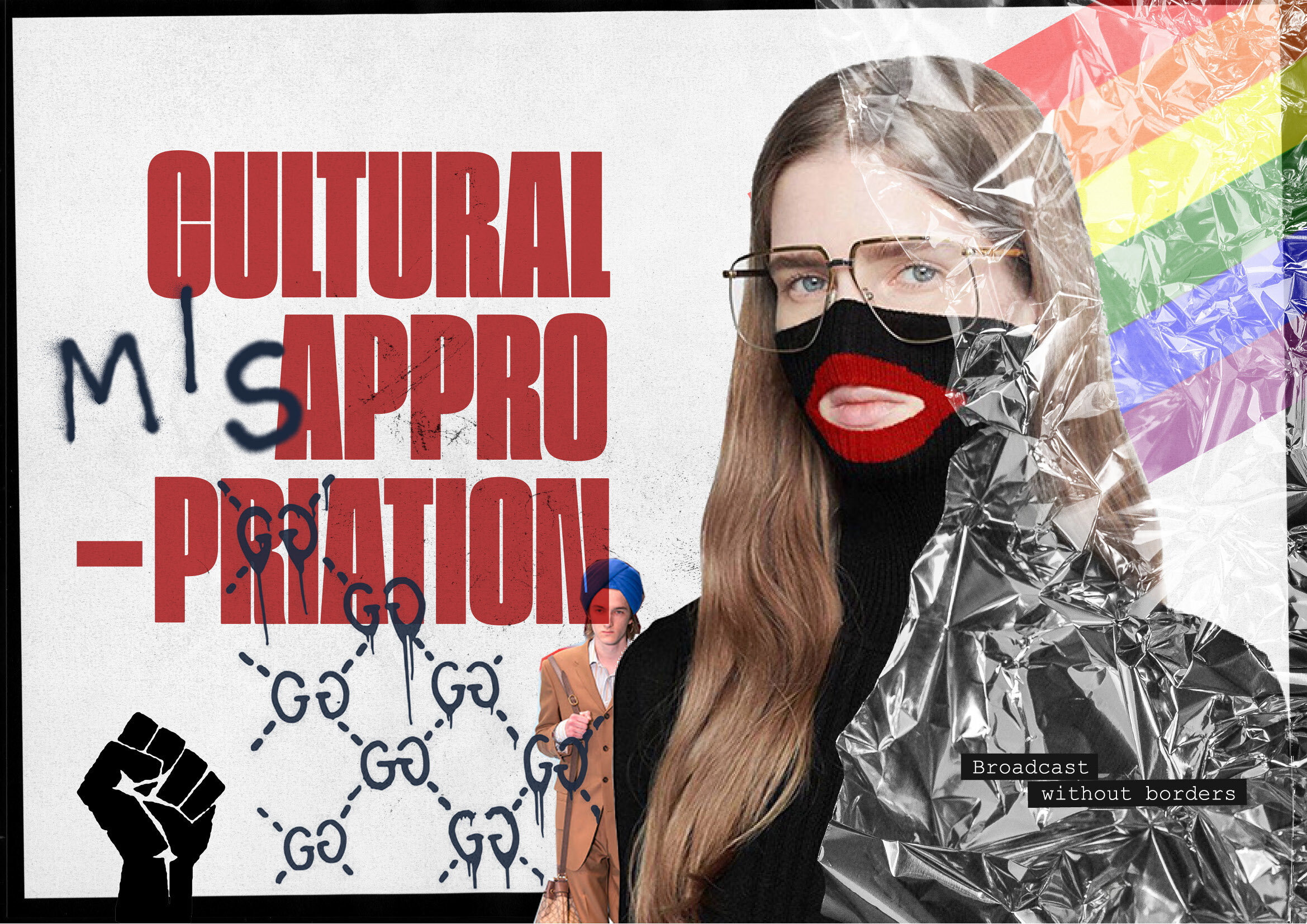
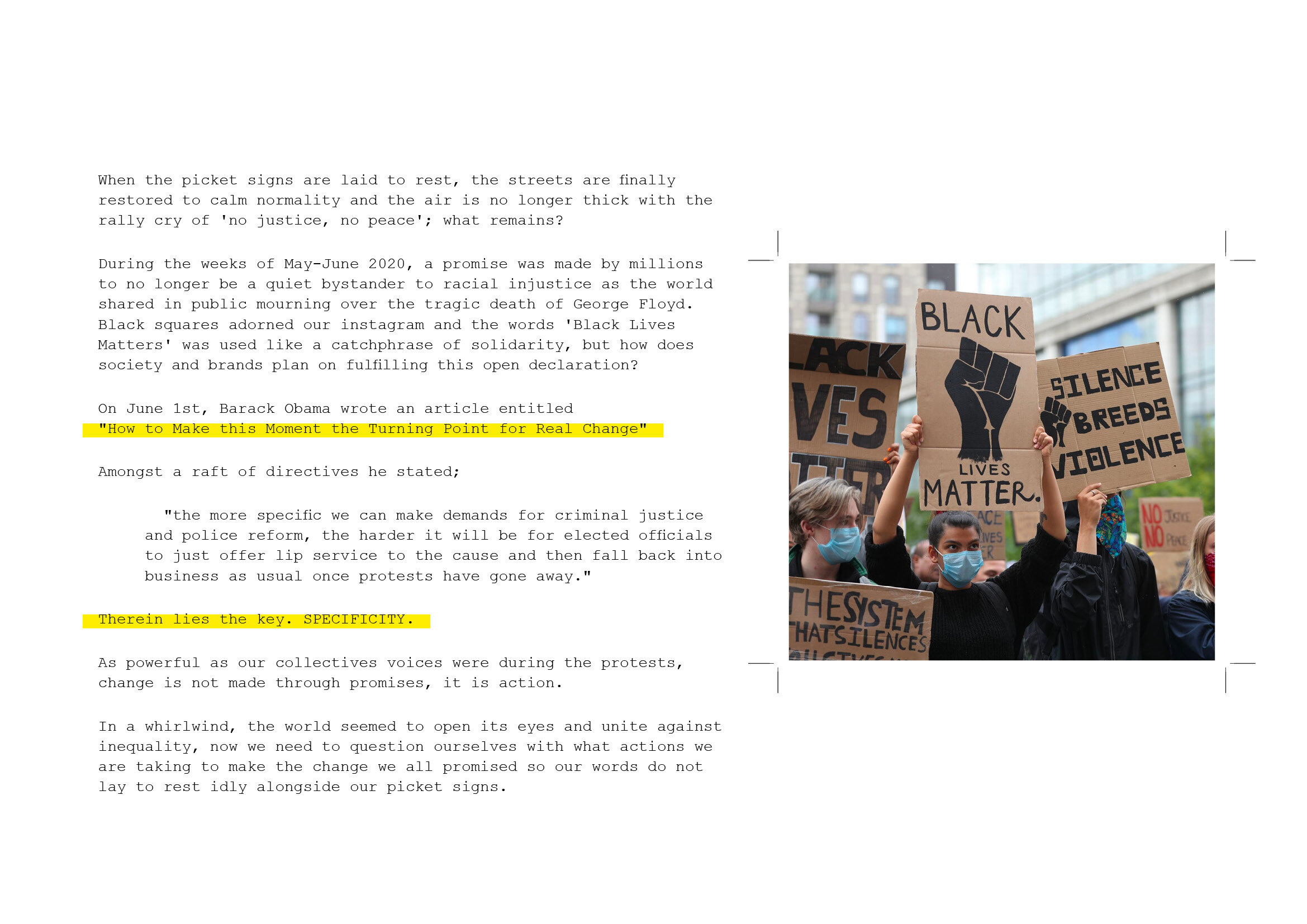
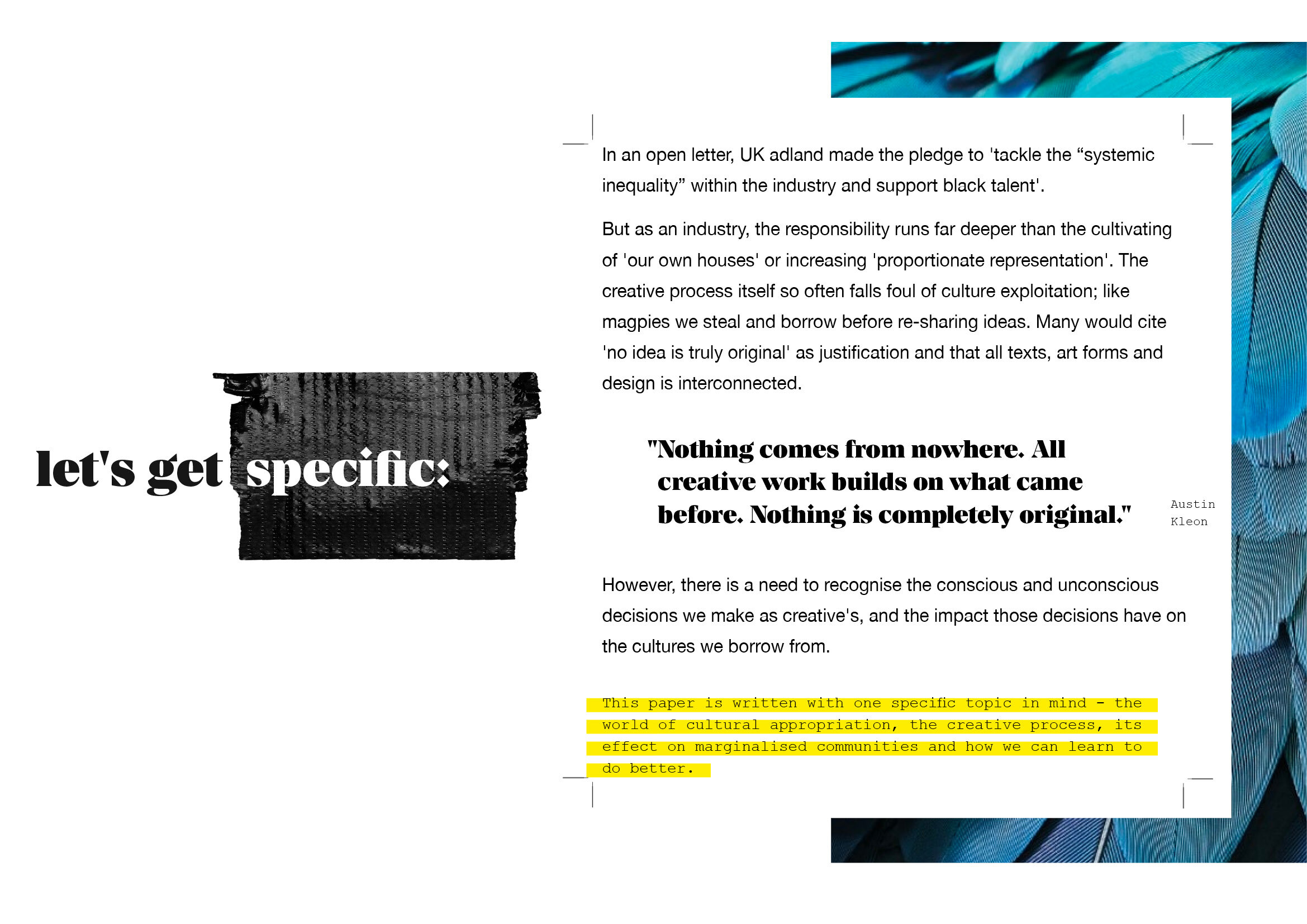
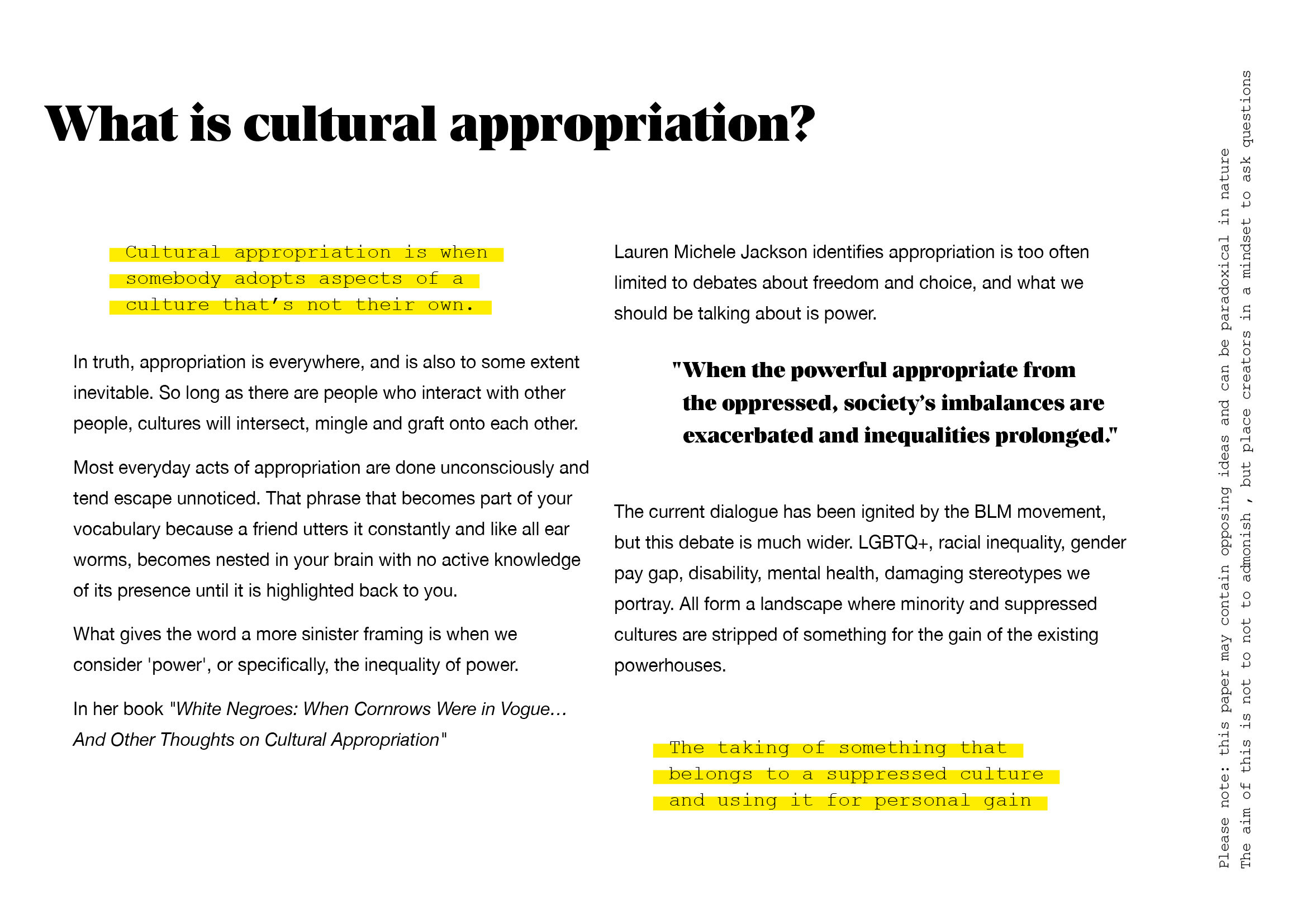
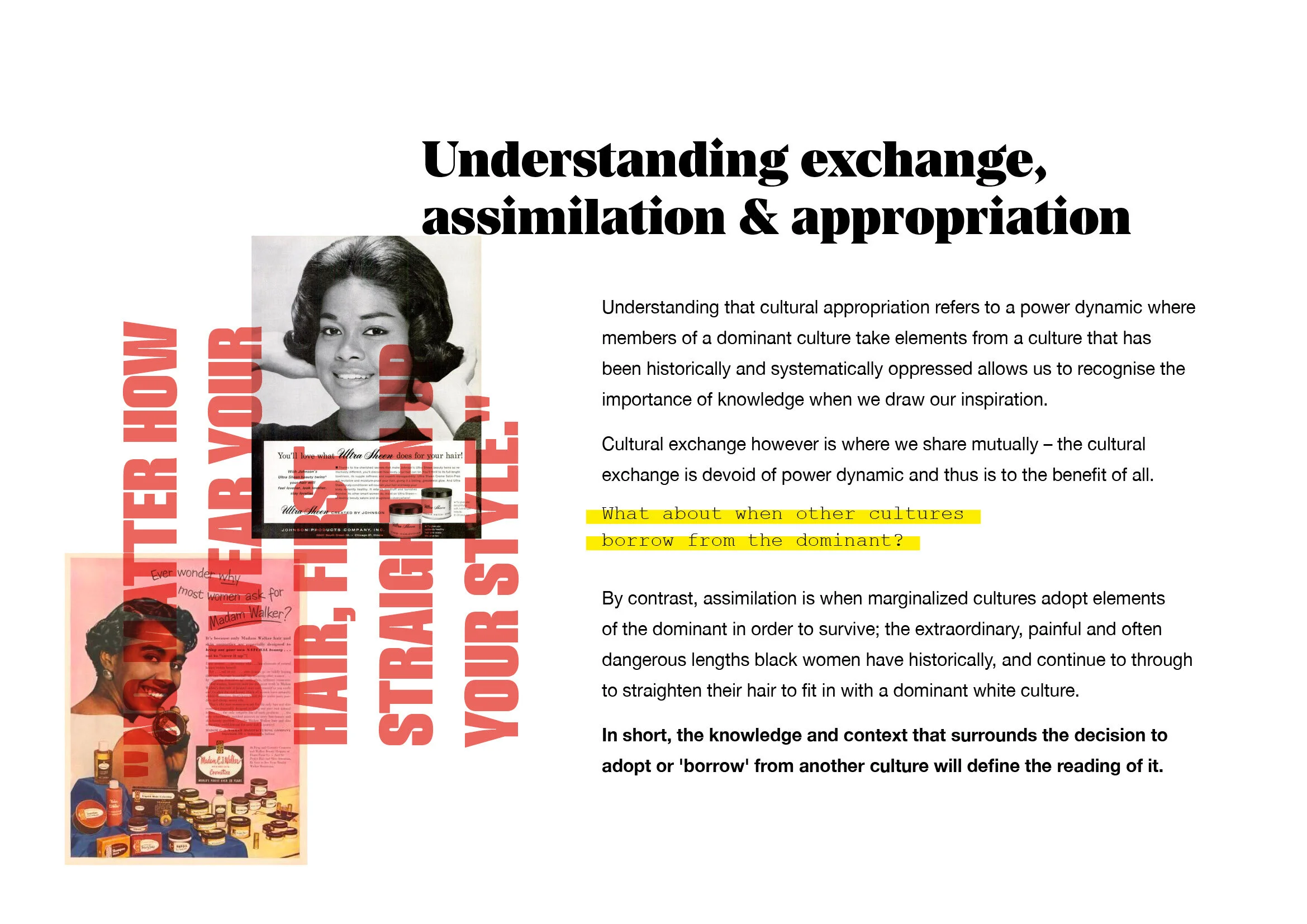
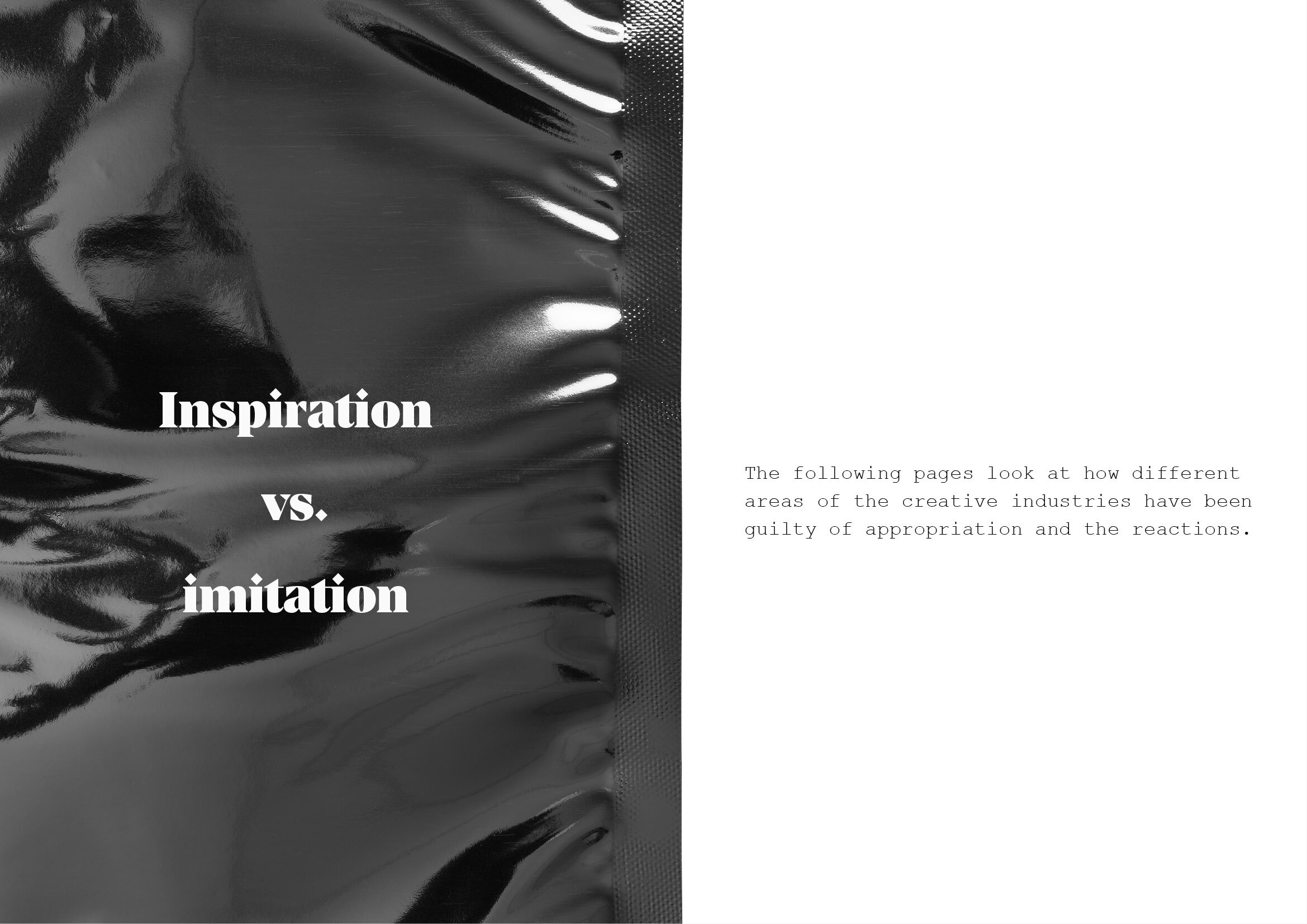
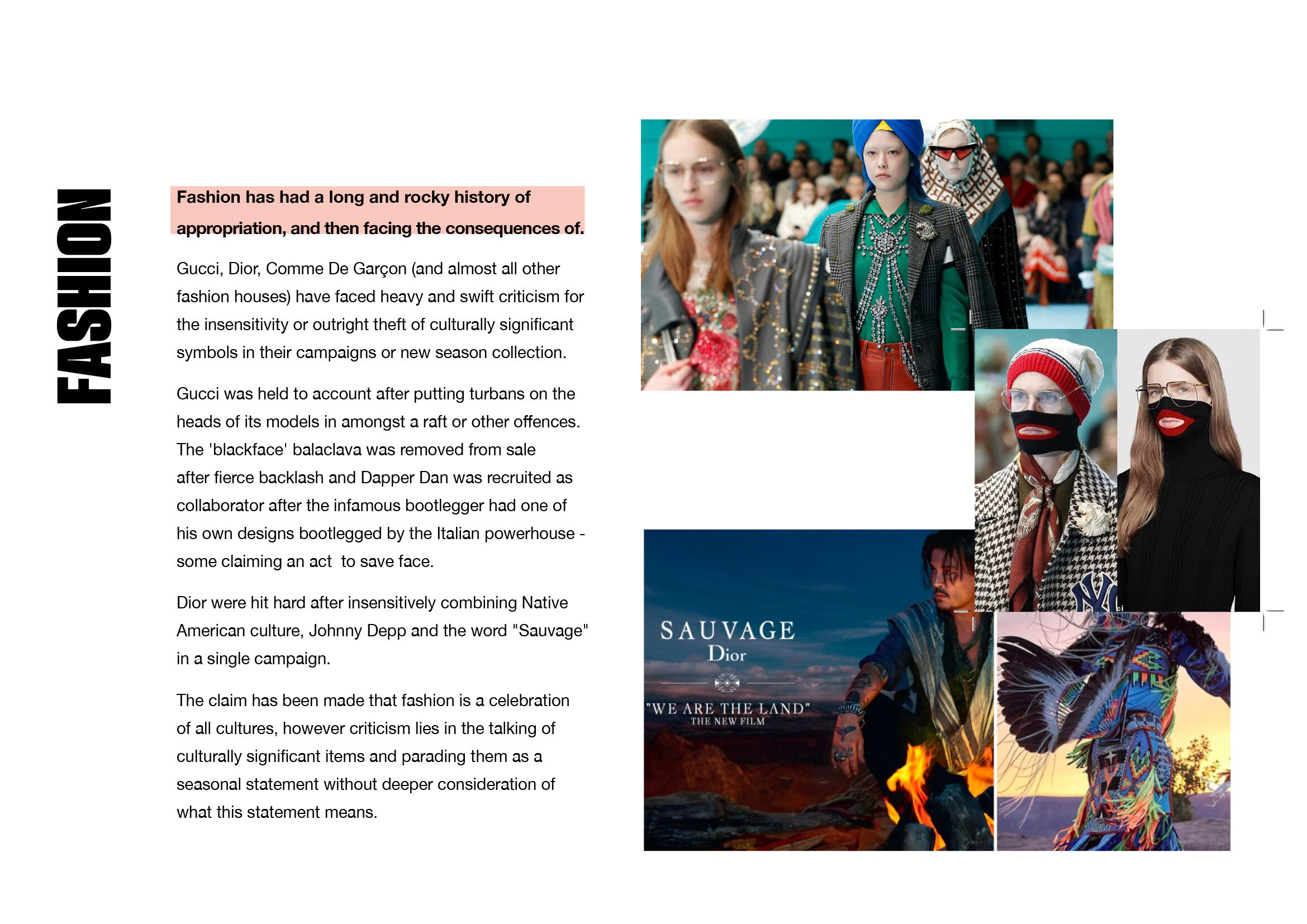
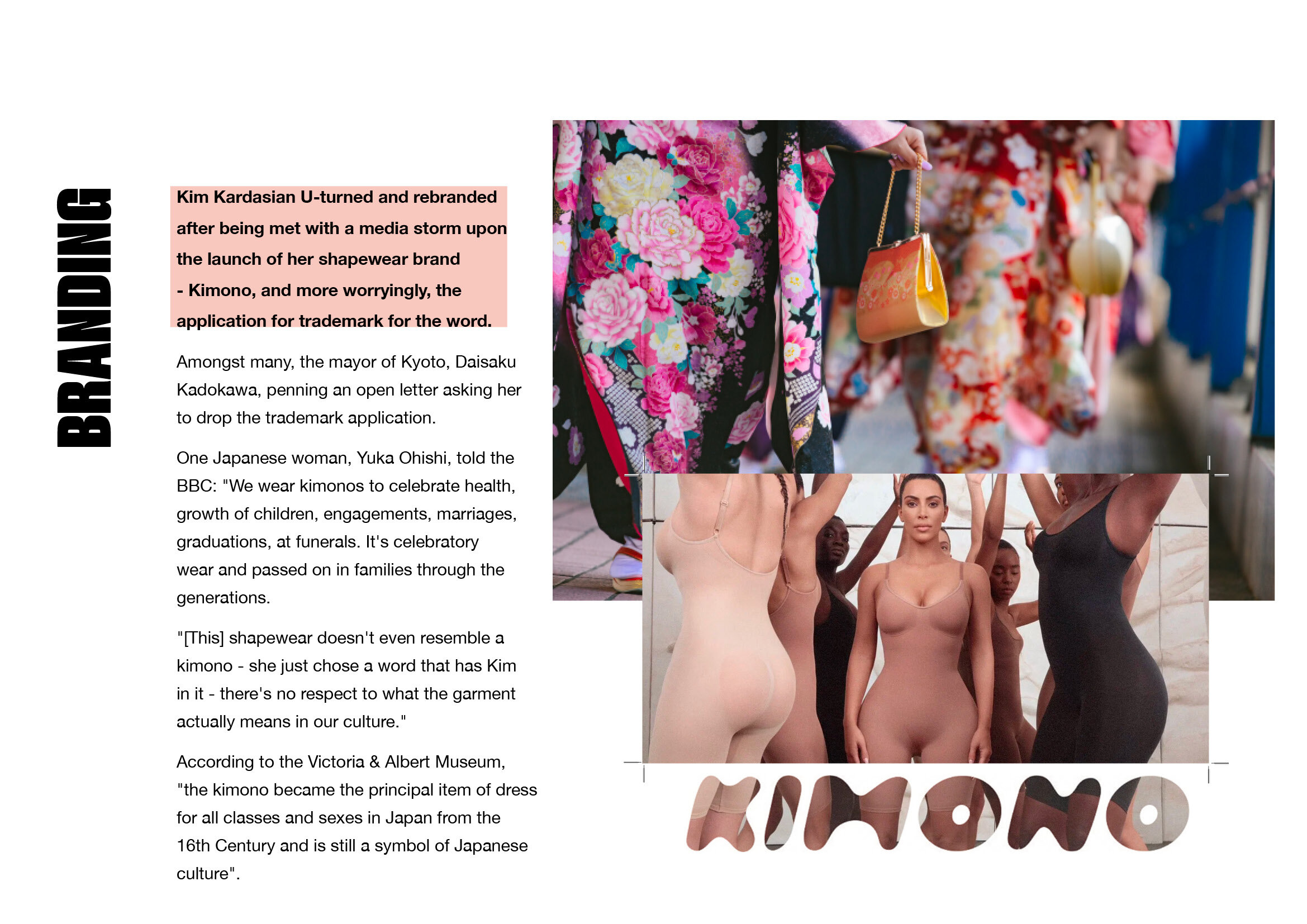
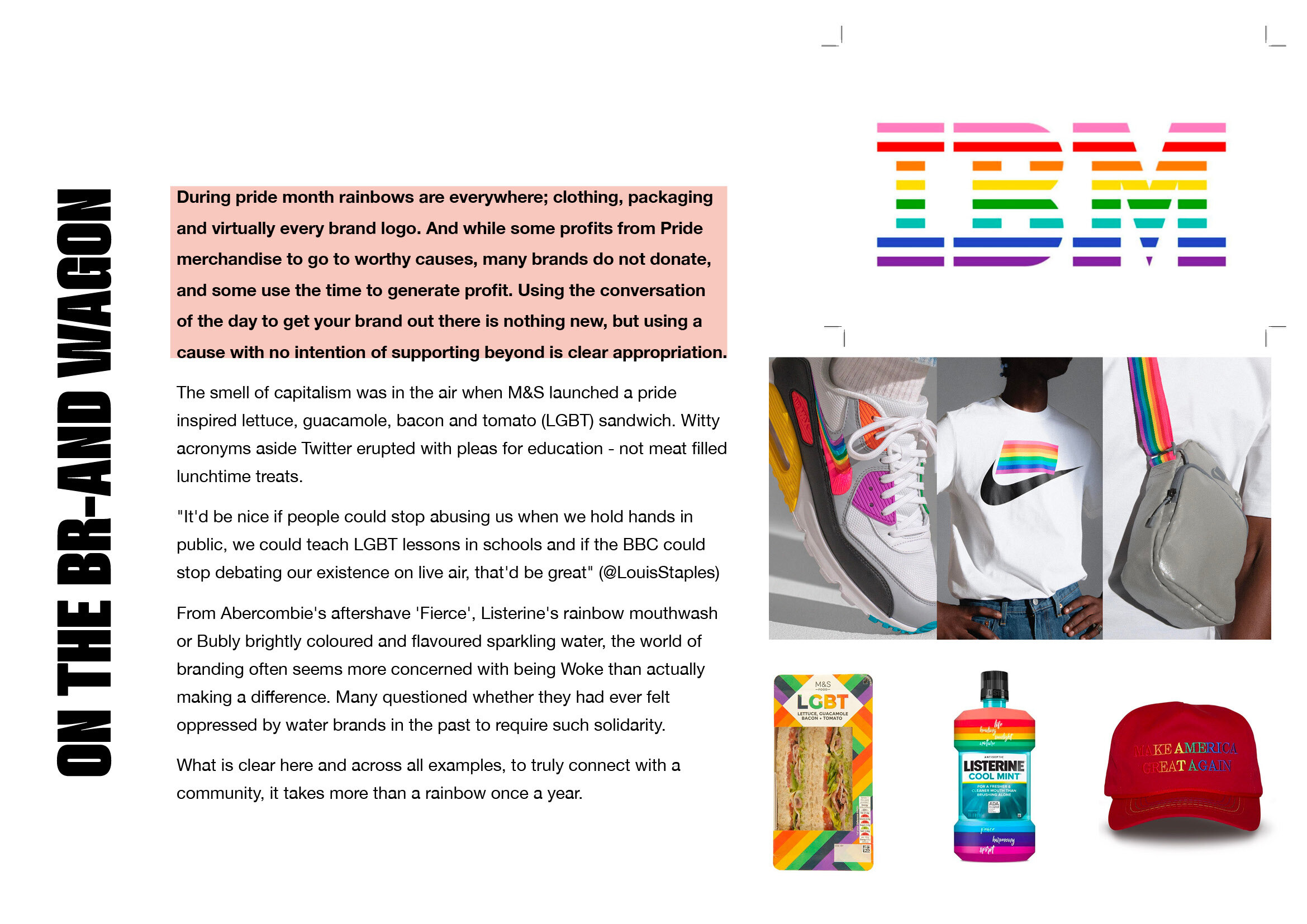
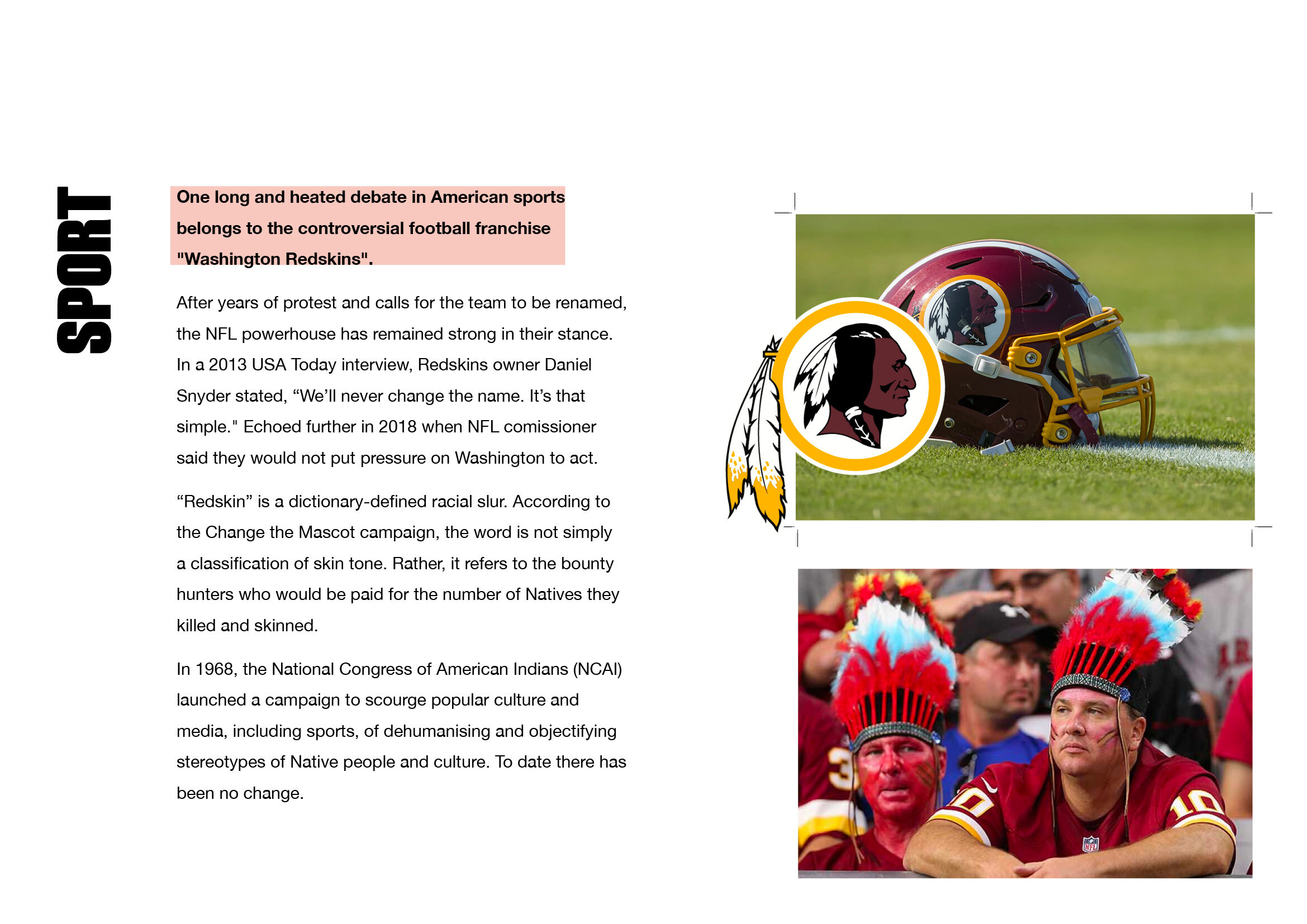
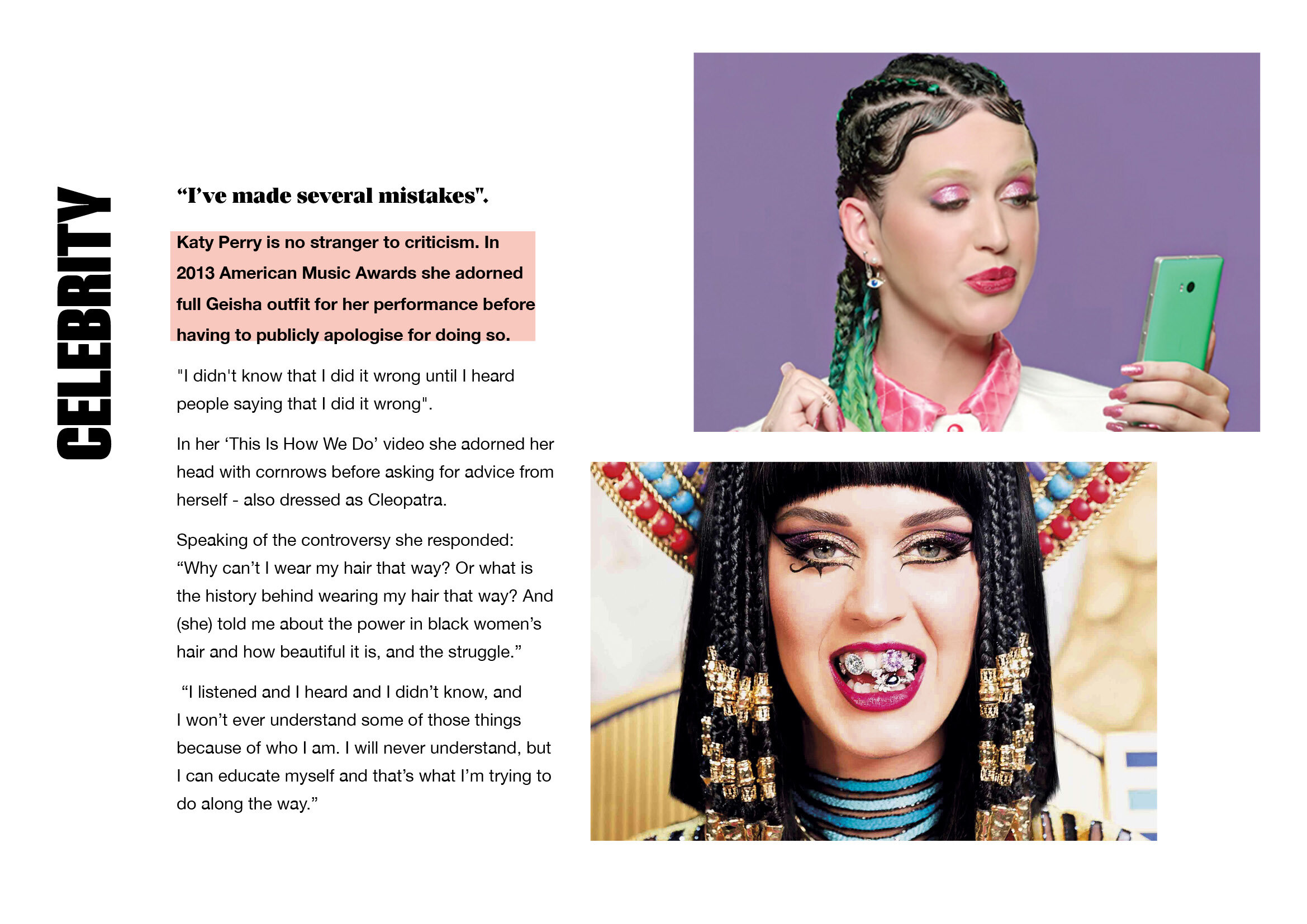
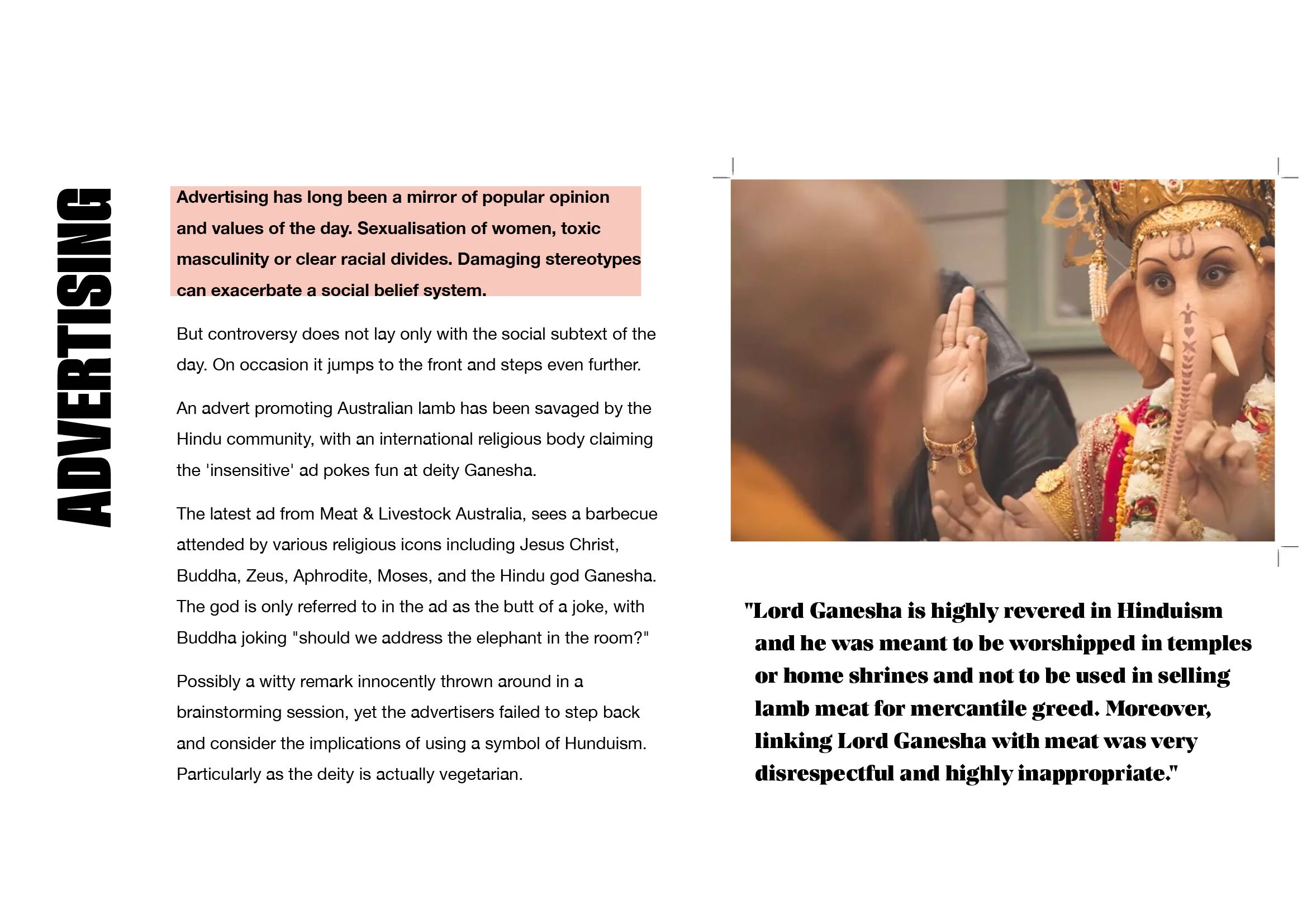
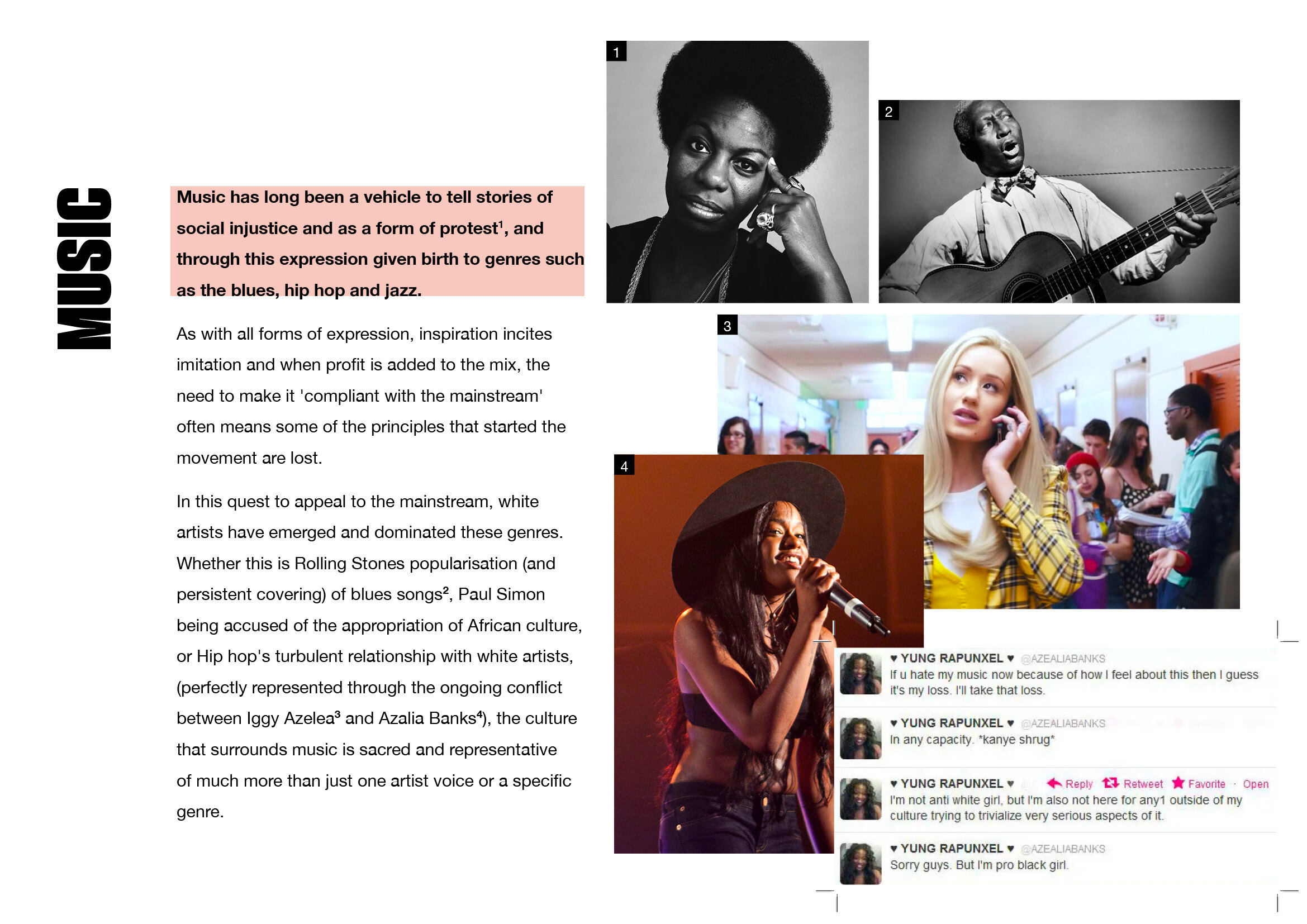
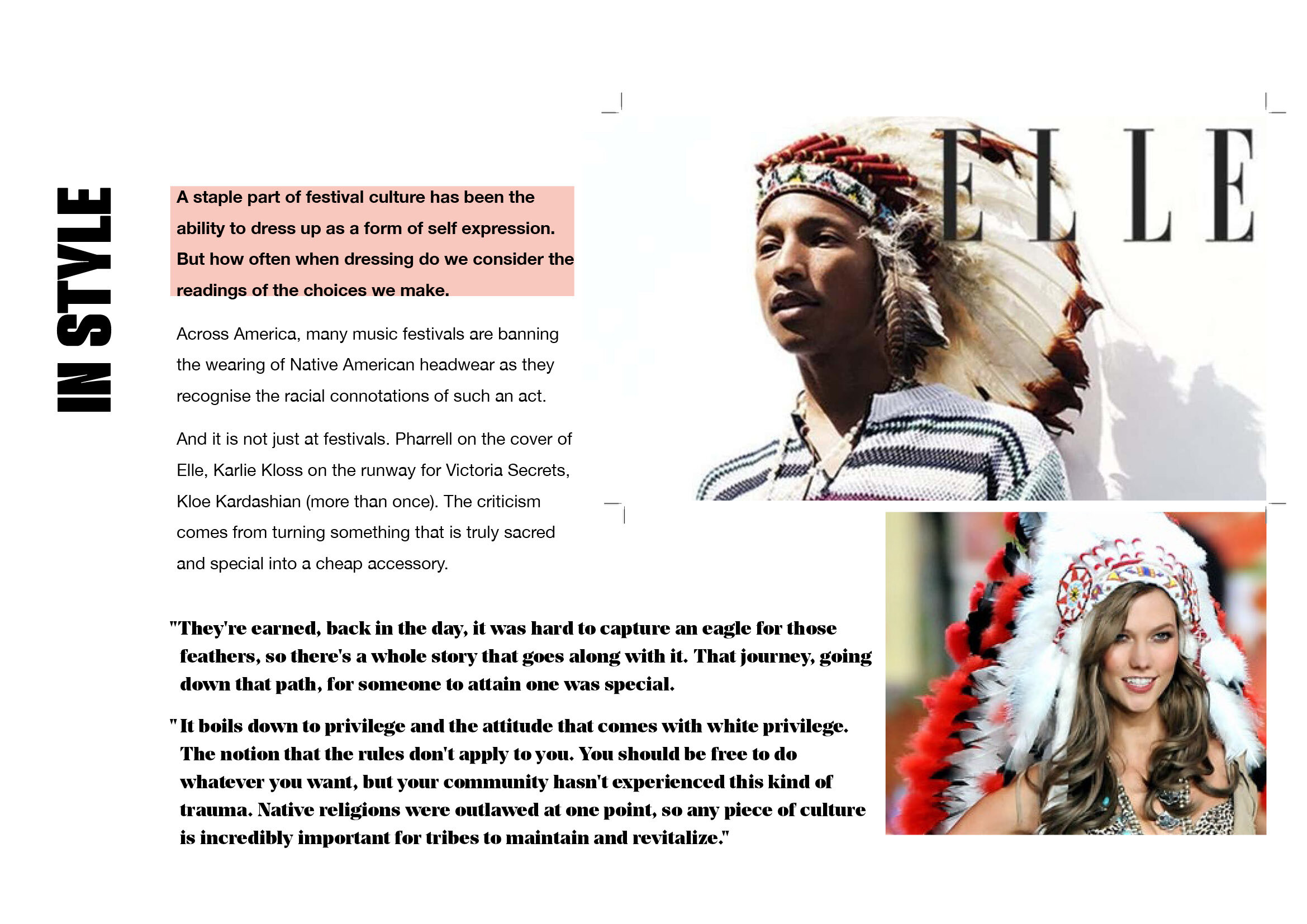
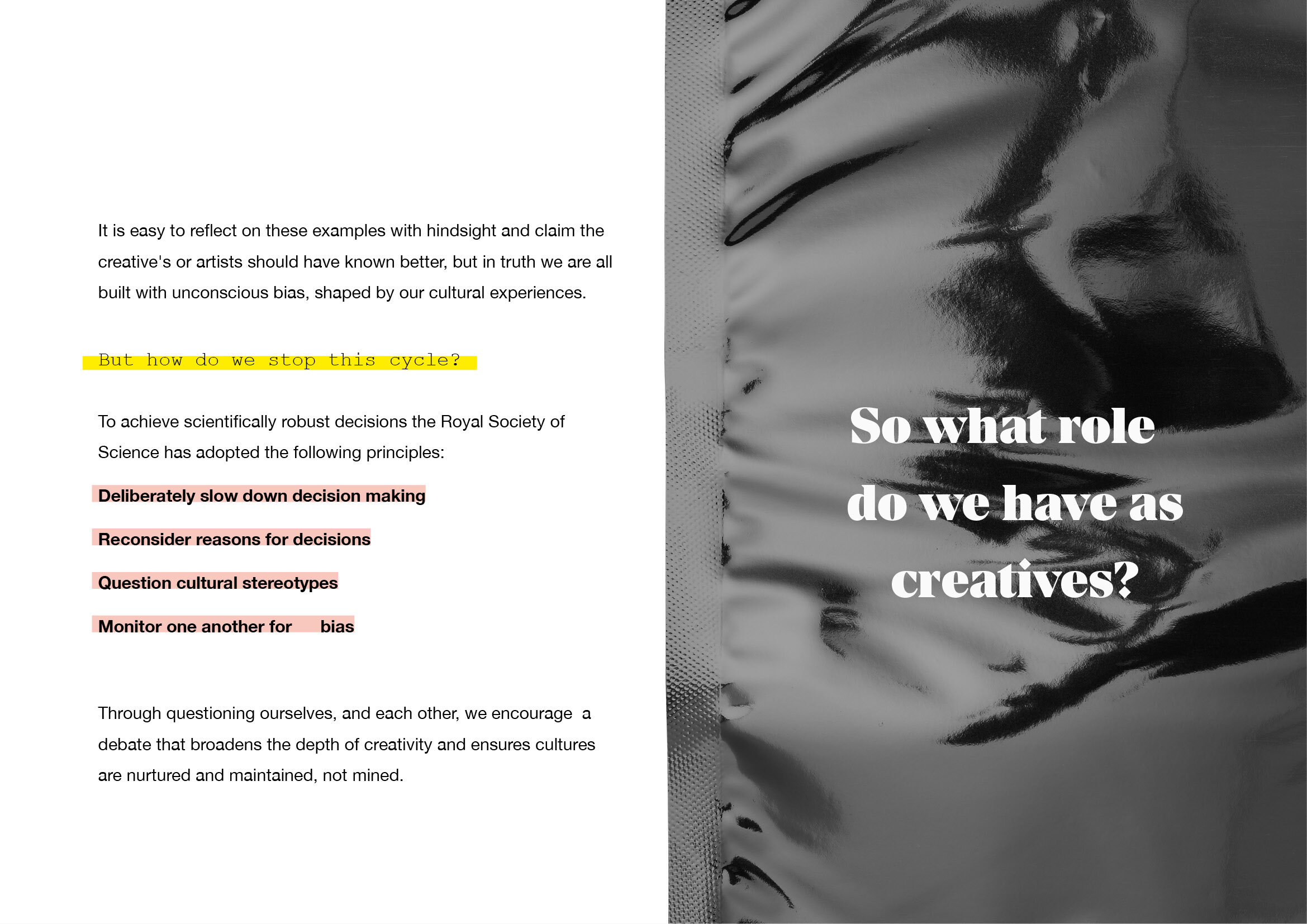
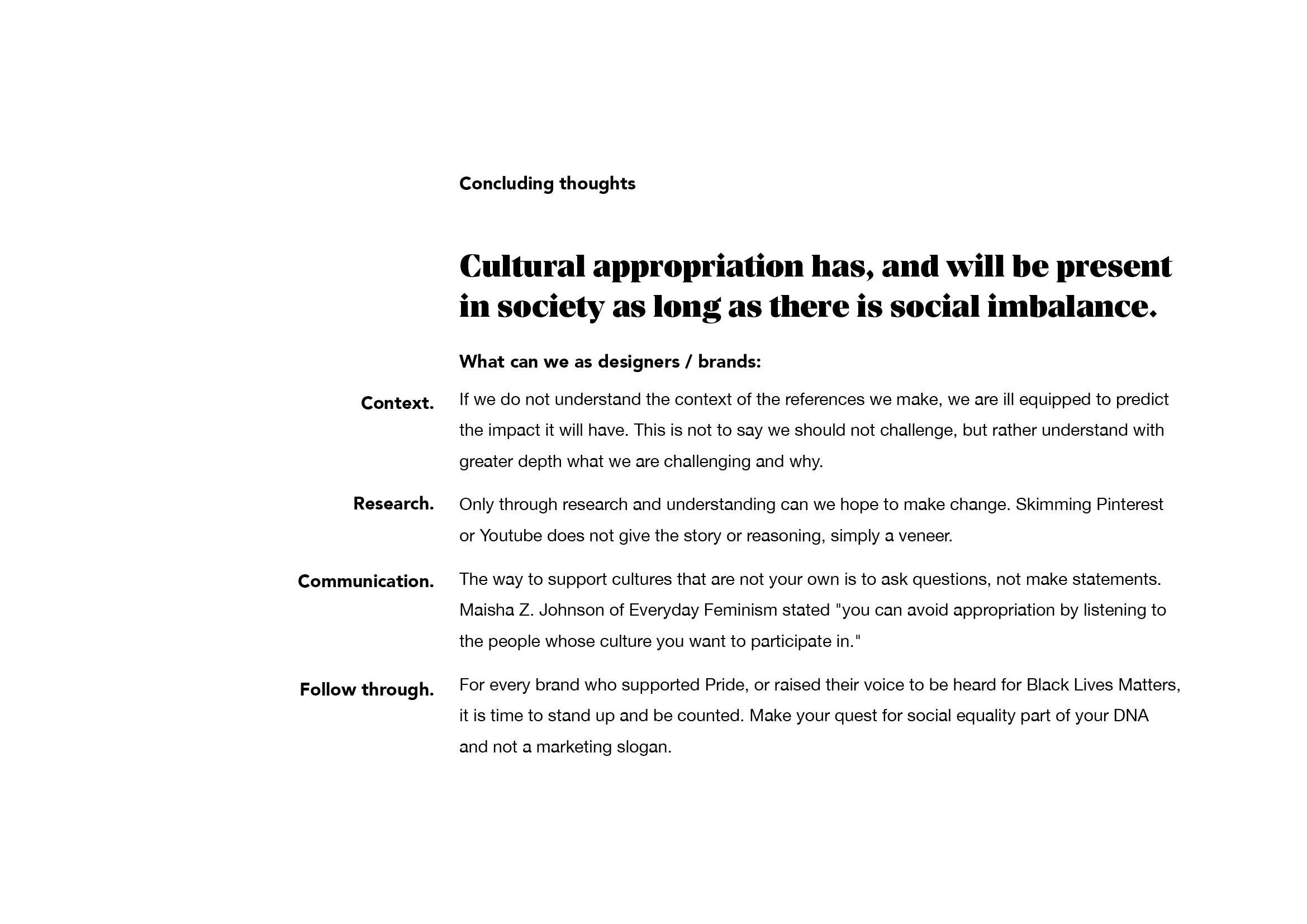
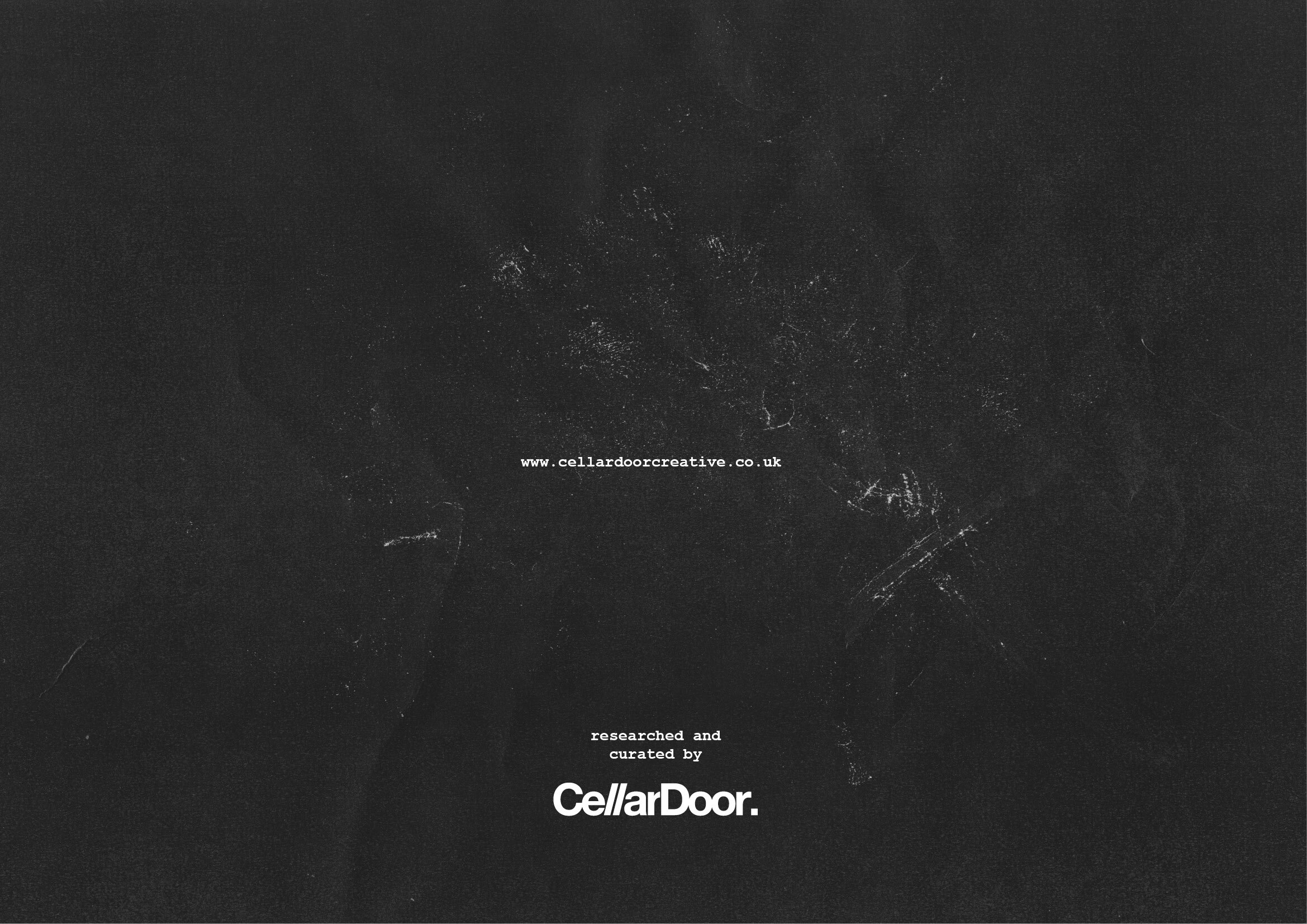
Black History Matters
Black Lives Matters is not a trend. It is a deep seeded narrative. It is a social imbalance and will continue unless there is a change in the system. We all have a role to play and can support but do not do it blindly.
Knowledge and awareness are the only ways to make true lasting change.
Food, Glorious Food
The pandemic has forced us all indoors and into isolation. Although this will not be enforced forever the implications and practices may continue to ripple.
Telecommuting technology has historically been slow to take off, with 'sticky' work cultures being widely responsible for this inertia. However video conferencing and online workflow has and continues to undergo massive investment which may result in more permanent shifts in working patterns.
(Office) working can be loosely broken into two camps; collaboration and incubation. Fundamentally as humans we like to share and meet up and the best ideas are nurtured as a team, but many have found the benefits of focused isolation when tackling an individual task. The recalibration of our working habits may result in more working from home, married with an increase in physical hang outs, to catch up, discuss and collaborate.
So what could this mean to the Food and Beverage Industry?
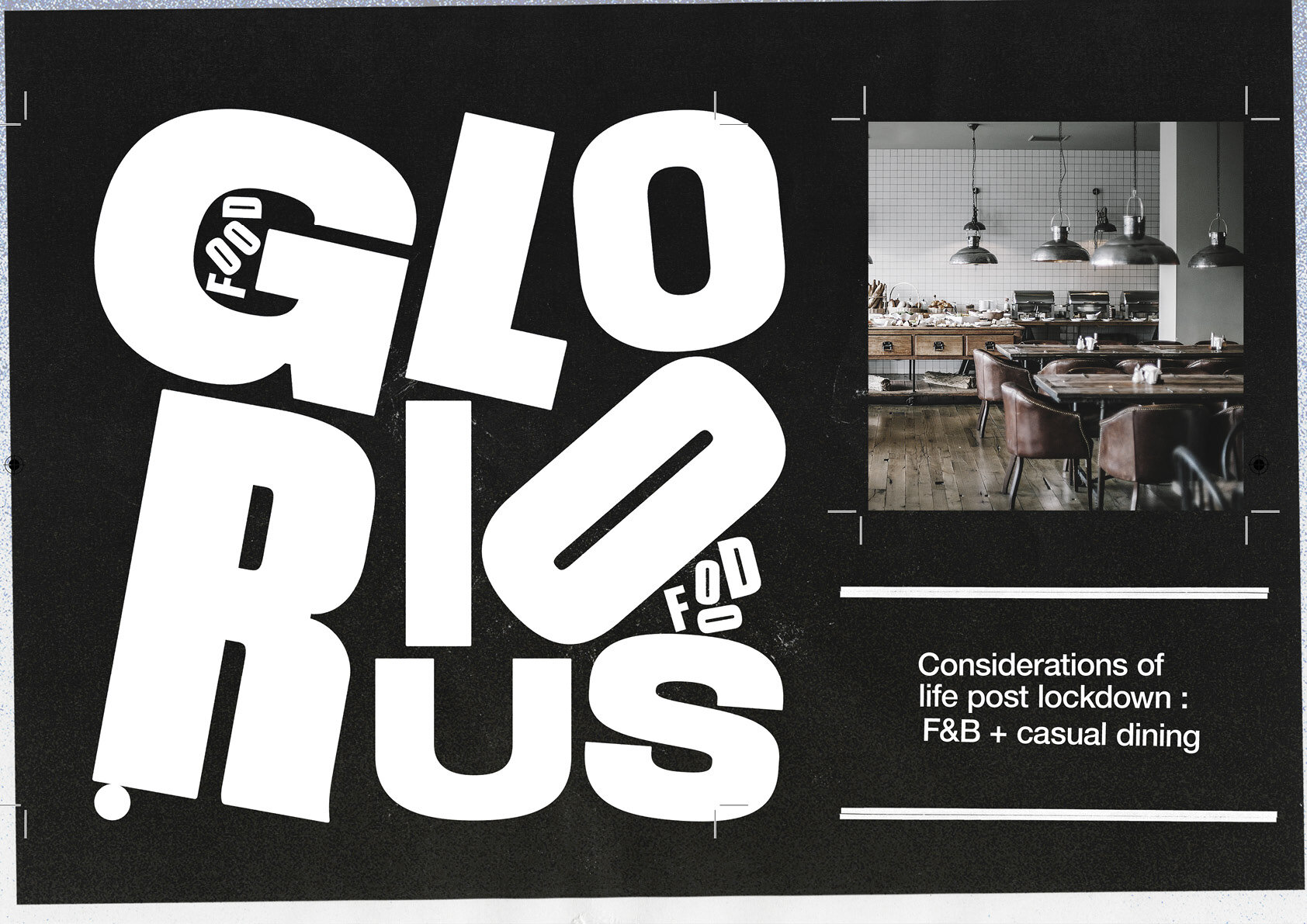
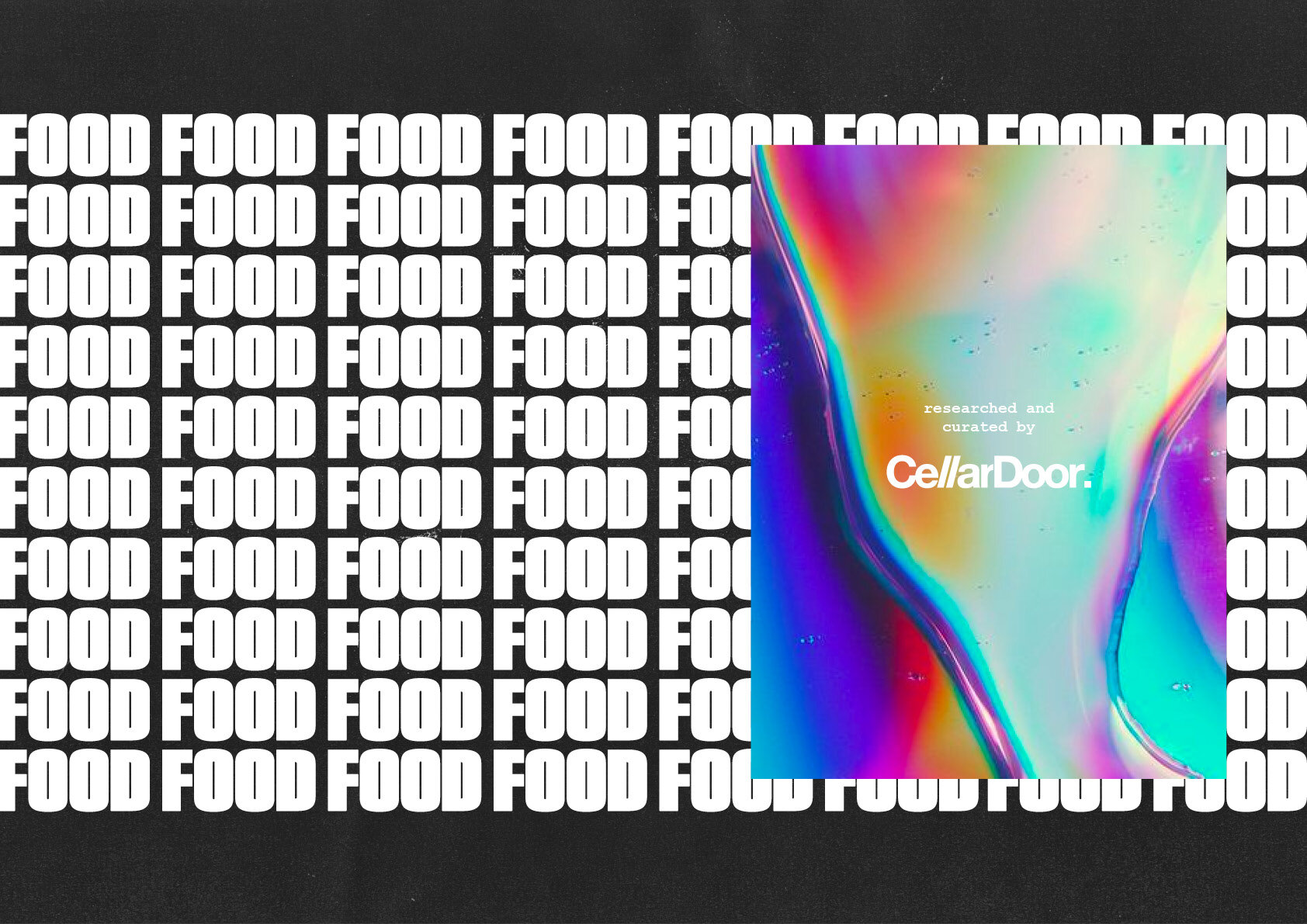
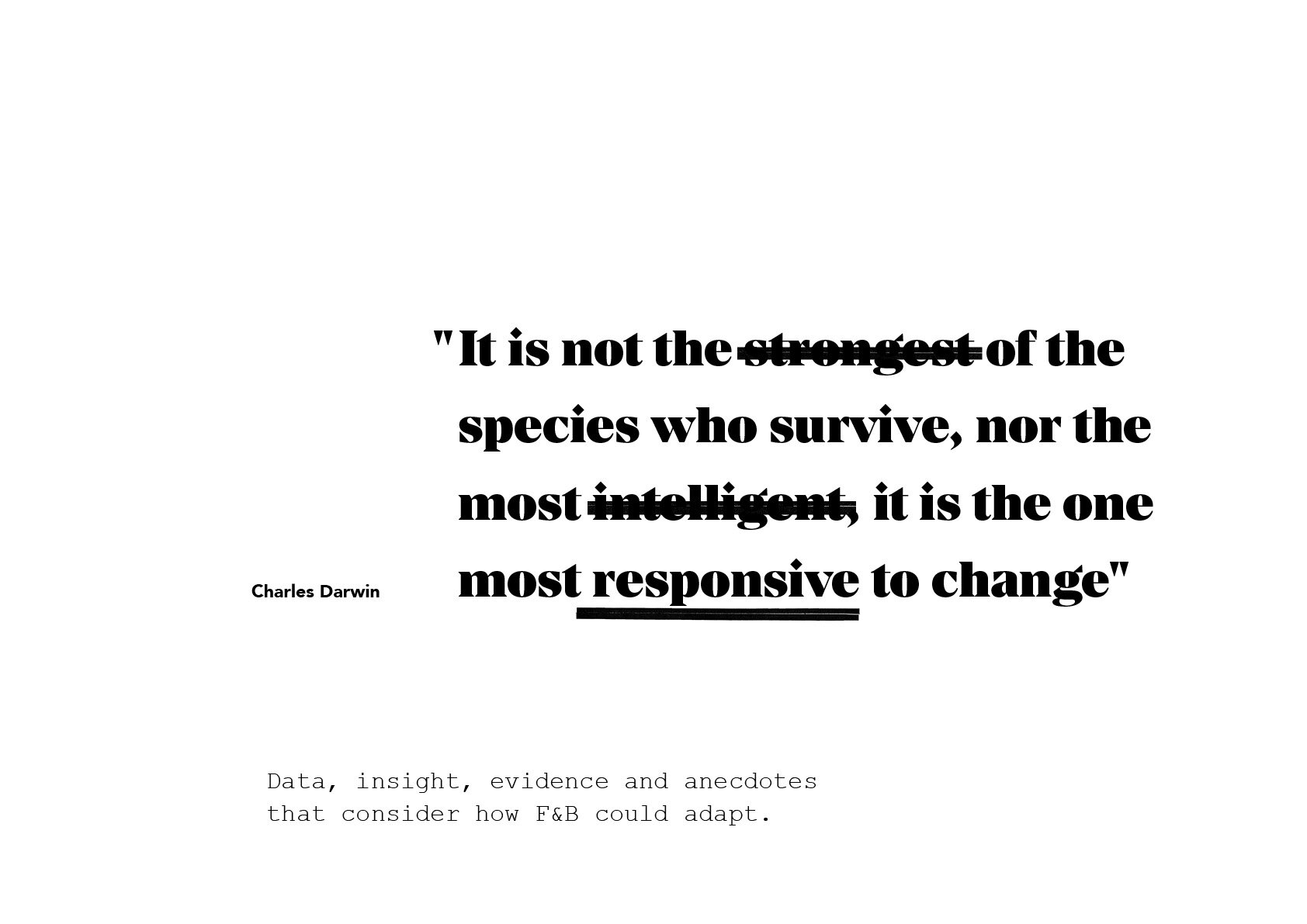
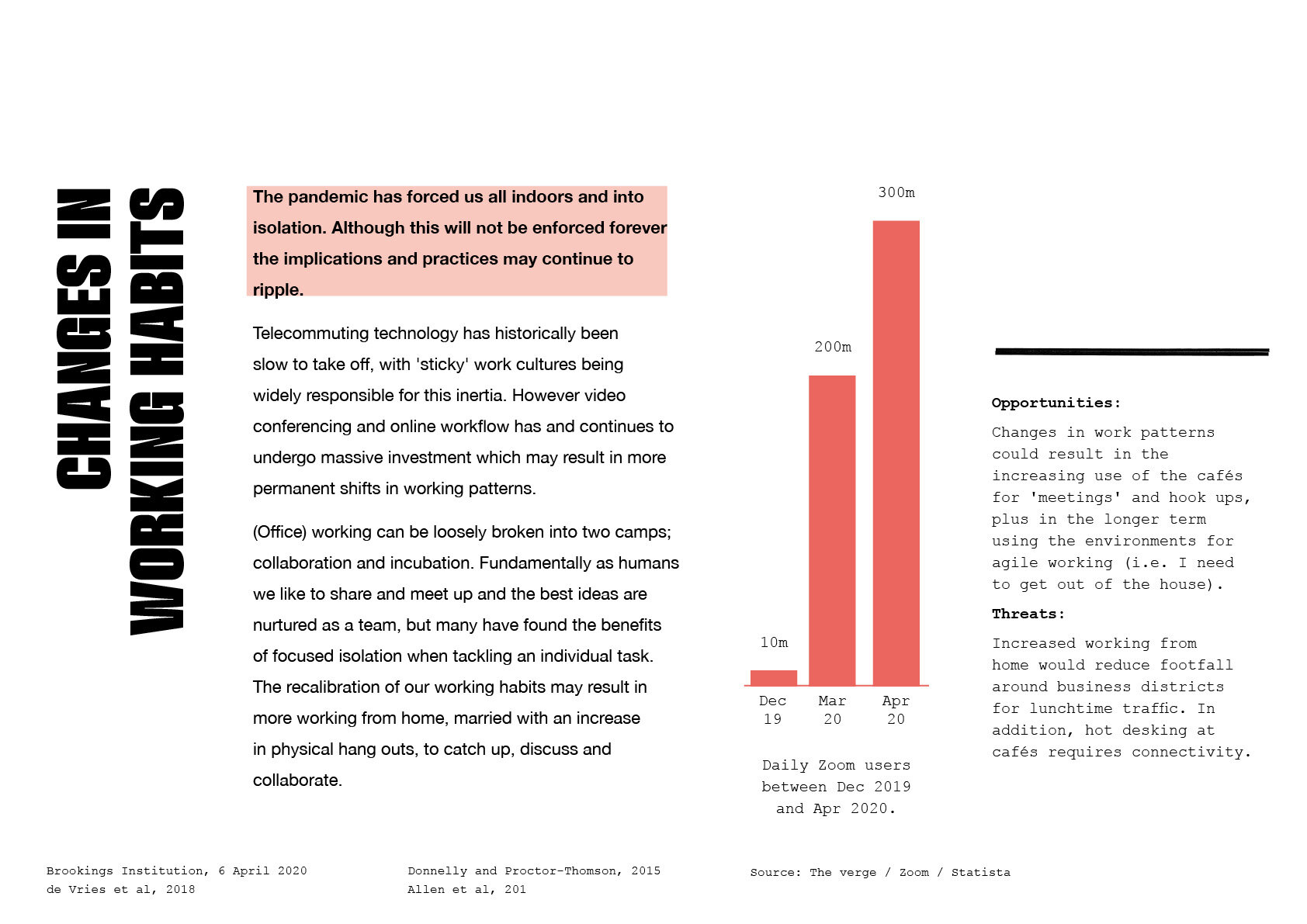
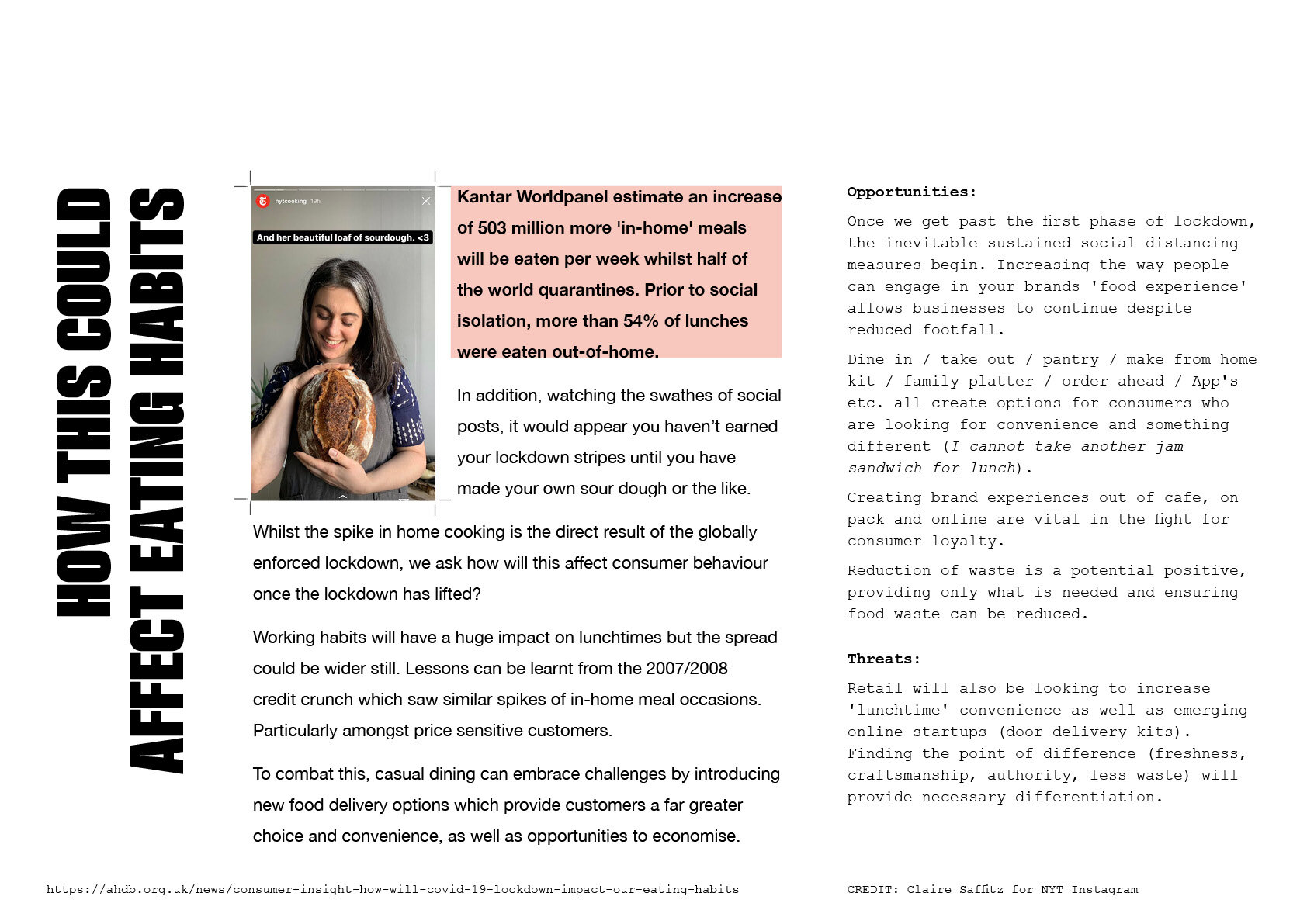
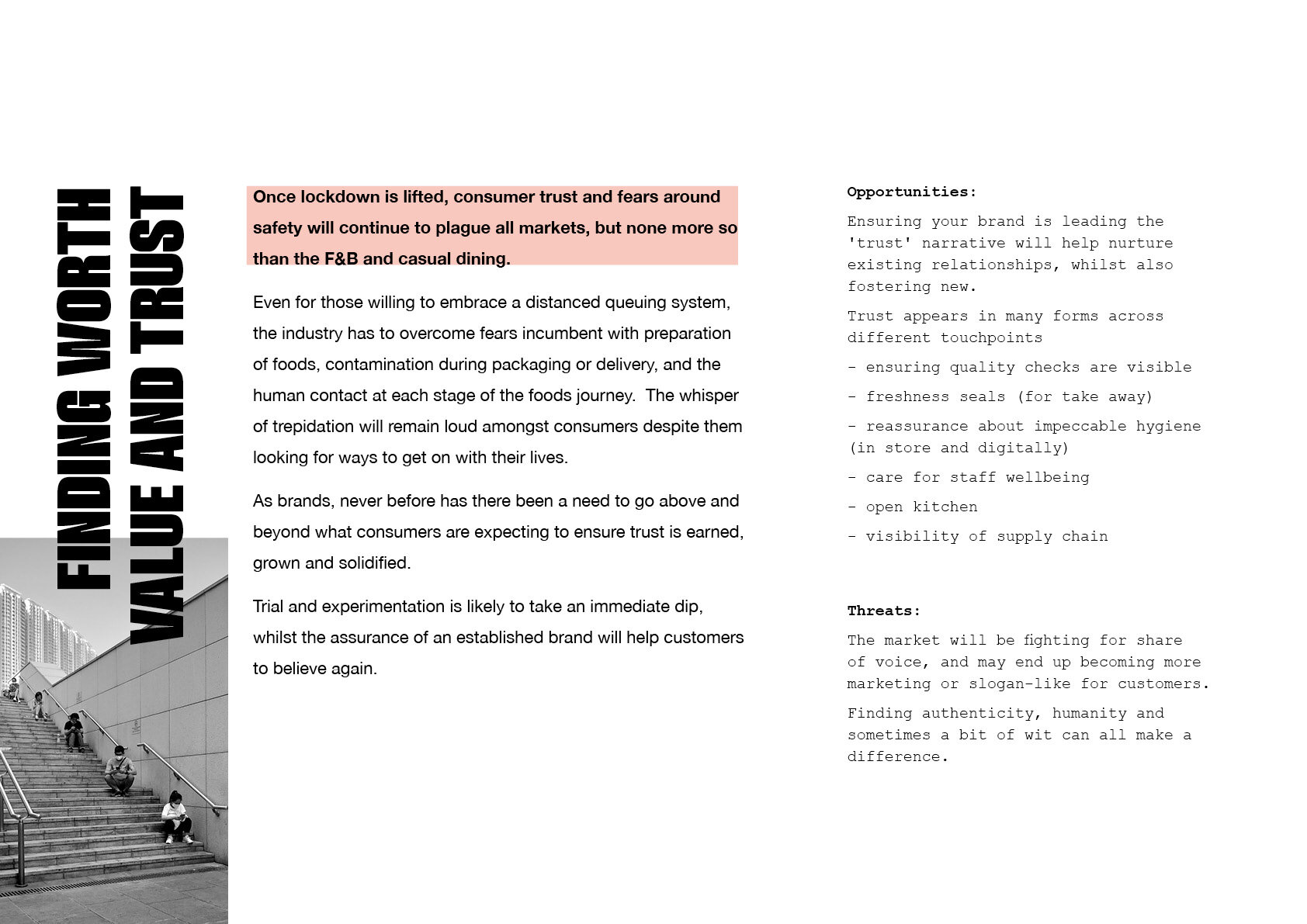
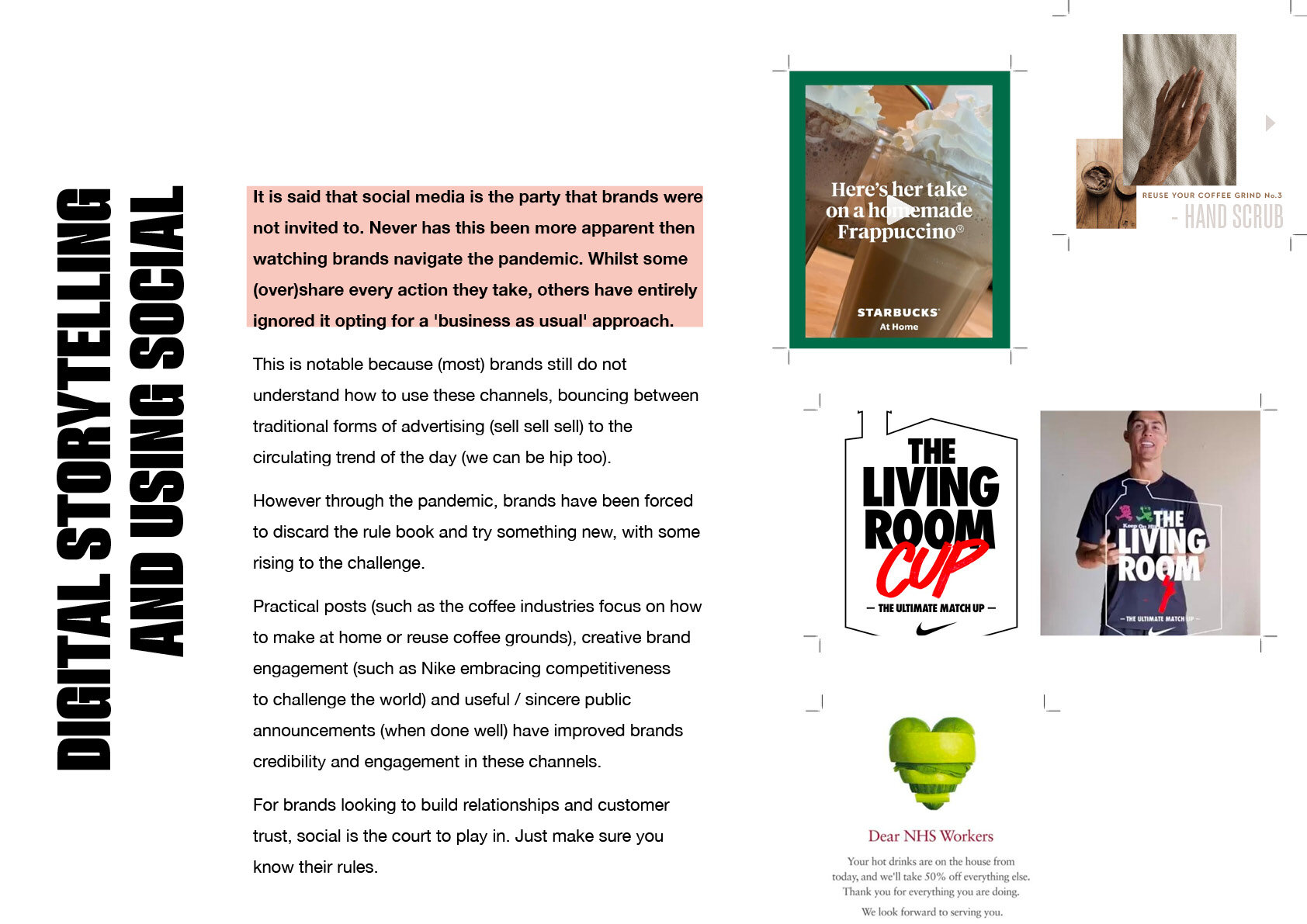
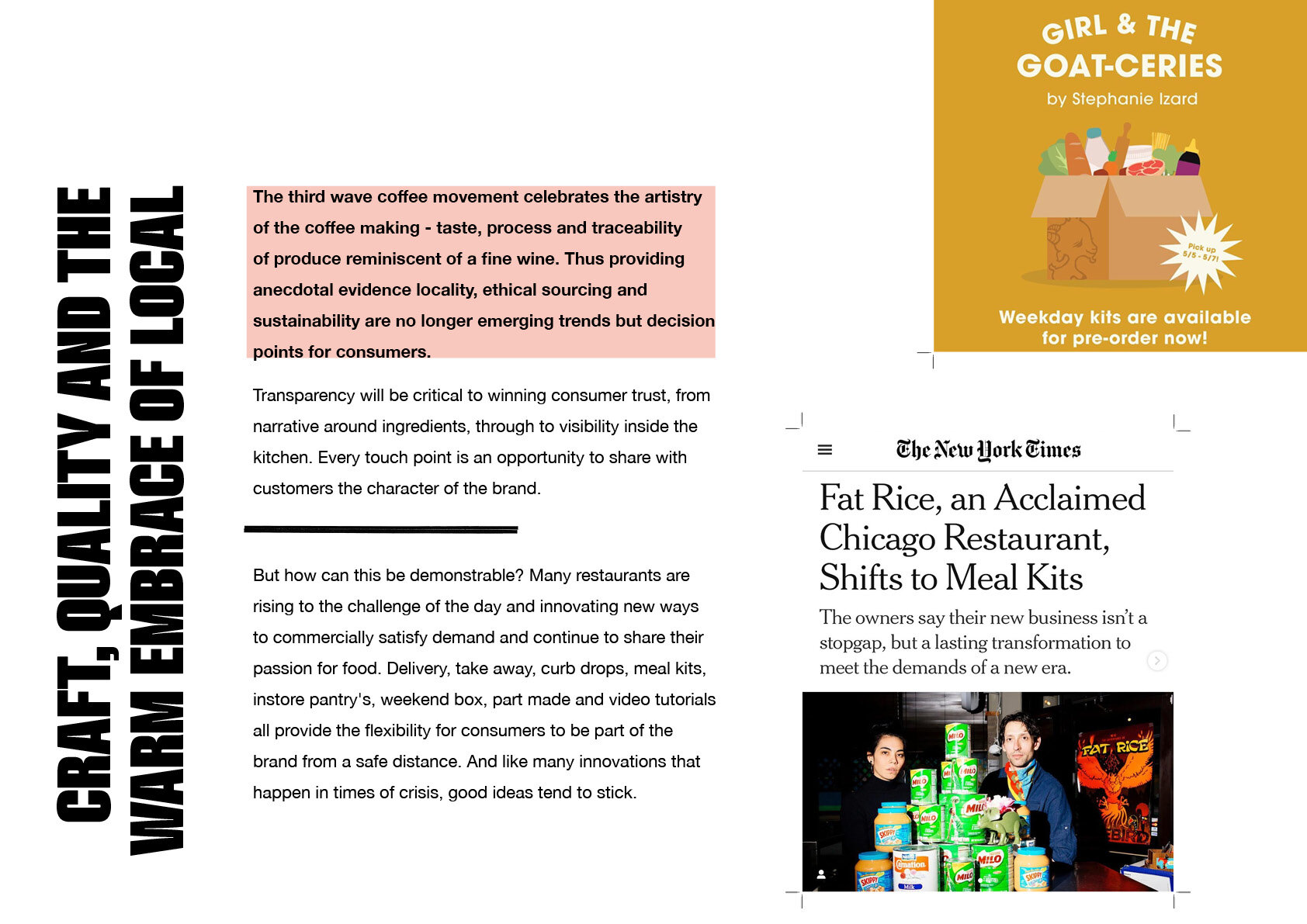
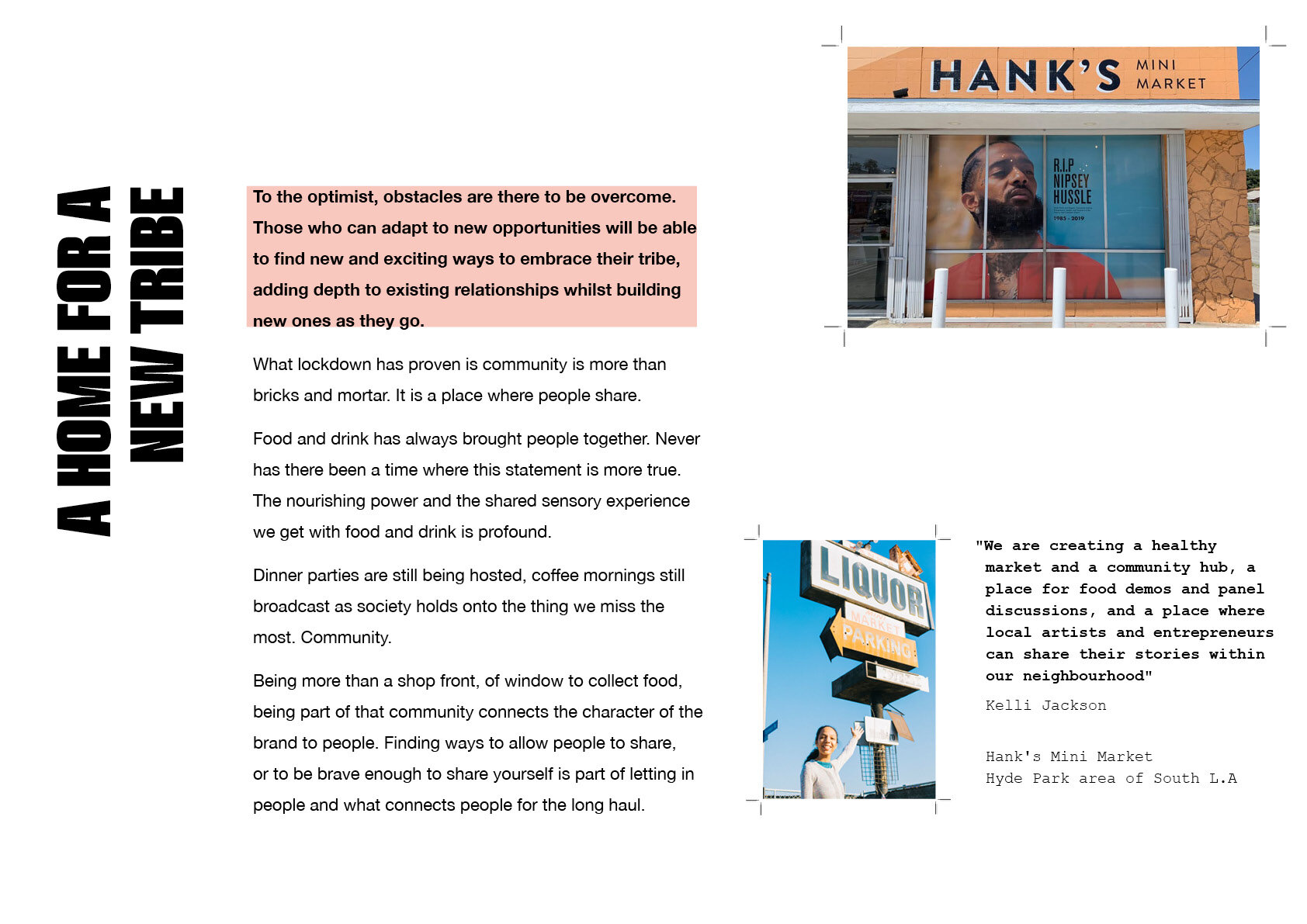
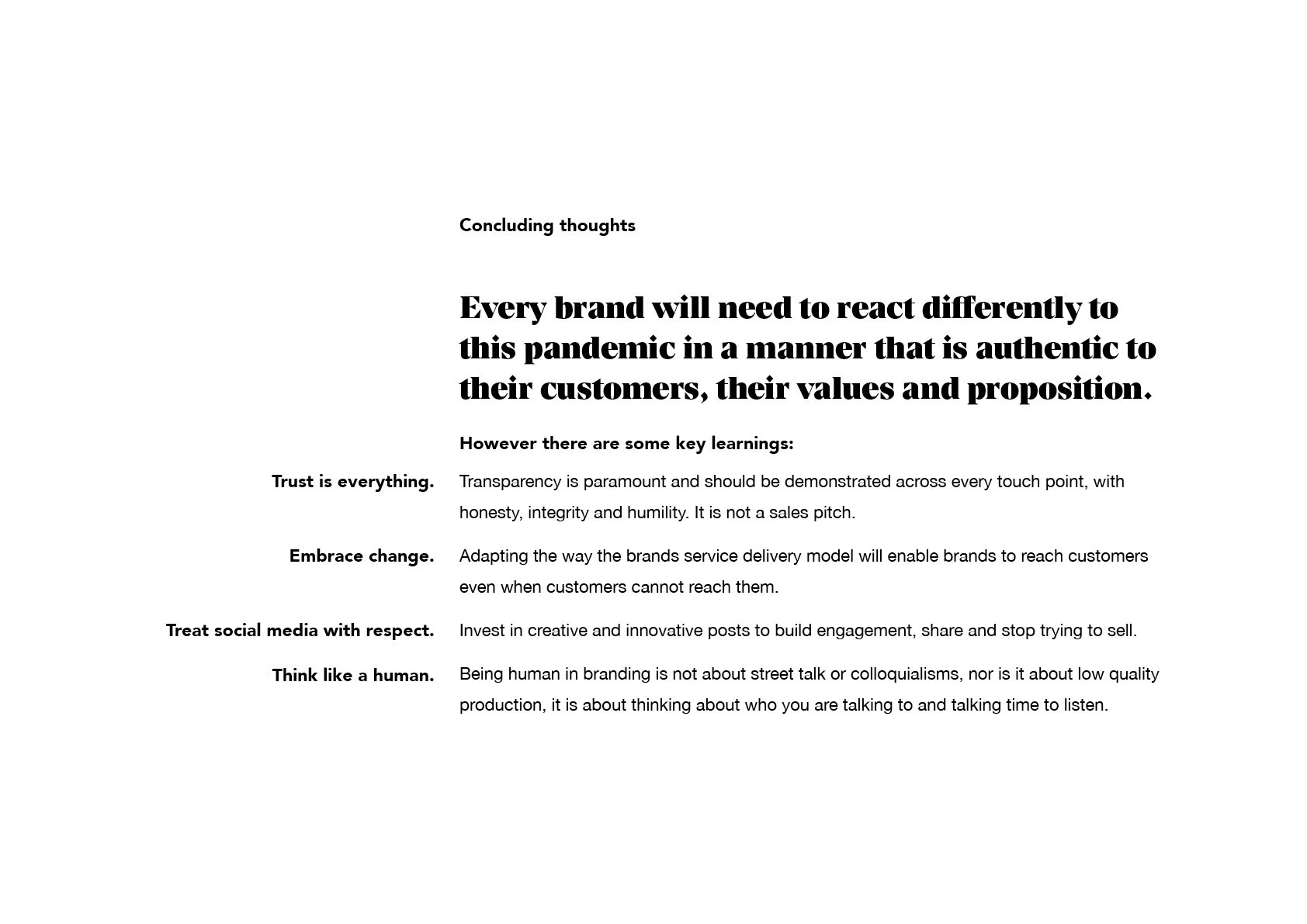
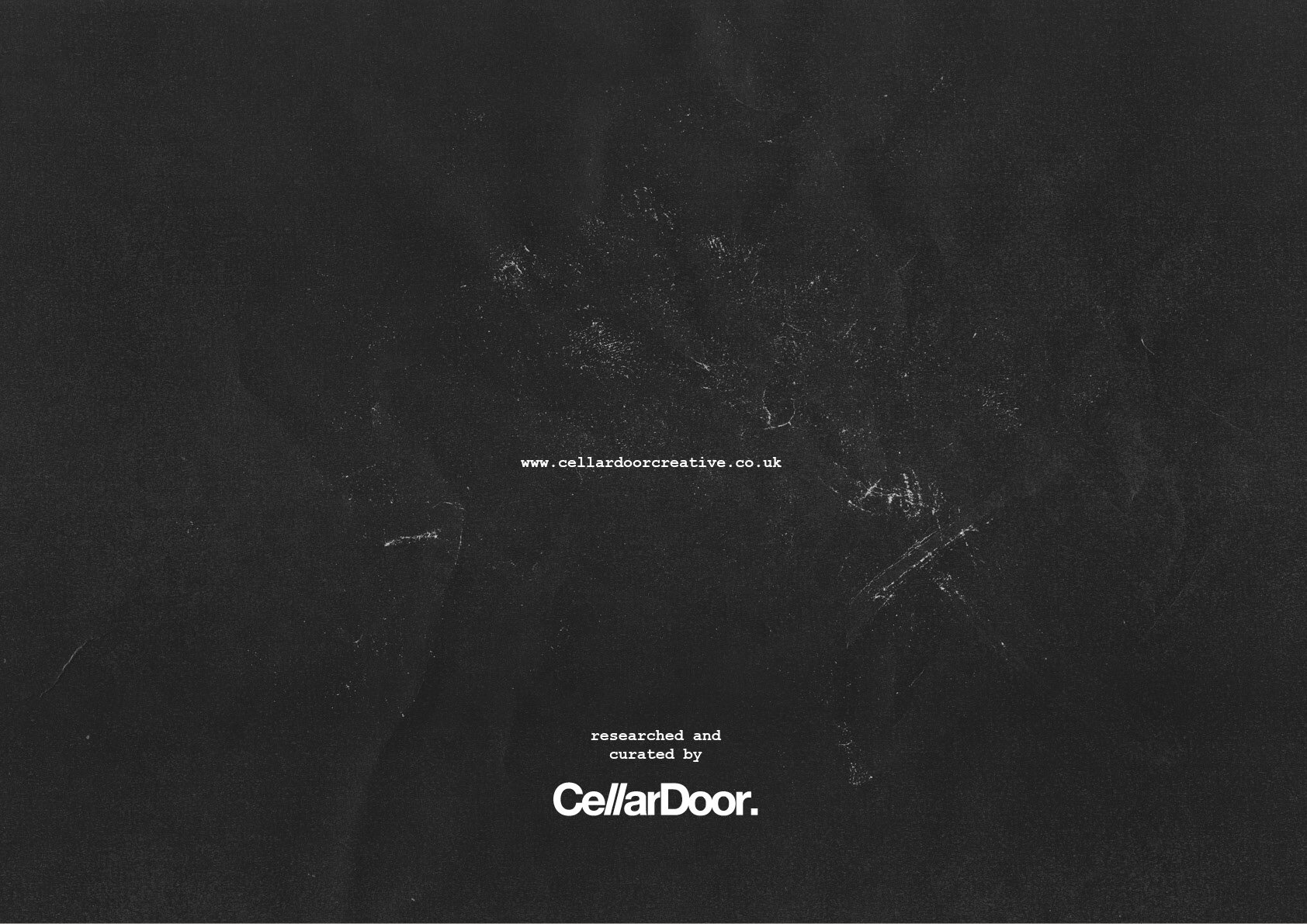
Unprecedented
With lockdown in full effect, the rhetoric of government, media and every brand out there is starting to blur.
The song definitely remains the same.








